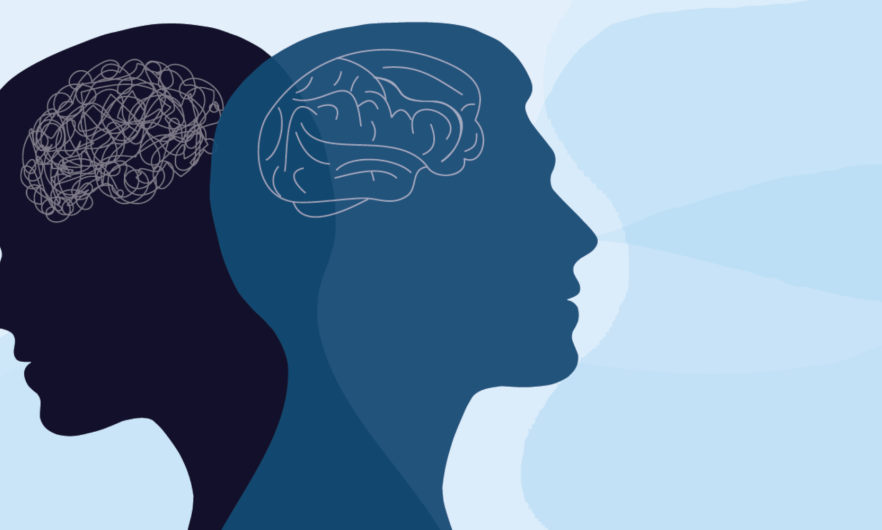In recent years, mental health has emerged from the shadows to take center stage in public discourse, reflecting a growing awareness of the importance of psychological well-being. As society grapples with the complexities of modern life, mental health issues have become increasingly prevalent, affecting people of all ages, backgrounds, and cultures. This article delves into the current state of mental health, exploring the factors contributing to its prominence, the challenges faced by individuals and communities, and the innovative solutions being developed to address this critical issue.
Page Contents
ToggleThe Rising Tide of Mental Health Issues

Mental health disorders have become alarmingly common in today’s world. According to the World Health Organization (WHO), depression affects more than 264 million people globally, while anxiety disorders impact another 284 million. These numbers, though staggering, likely underestimate the true scale of the problem, as stigma and lack of access to mental health services prevent many from seeking help.
Several factors have contributed to the rise in mental health issues. The rapid pace of technological change, economic instability, social isolation, and the pressures of modern life have all played a role. The COVID-19 pandemic, in particular, has had a profound impact on mental health, exacerbating existing conditions and triggering new ones. Lockdowns, social distancing measures, and the fear of illness have led to increased levels of stress, anxiety, and depression, with vulnerable populations being particularly hard hit.
The Role of Technology and Social Media
Technology has revolutionized the way we live, work, and interact, but it has also introduced new challenges to mental health. Social media platforms, while offering opportunities for connection and self-expression, have been linked to negative mental health outcomes, particularly among young people. The constant barrage of curated content can lead to feelings of inadequacy, loneliness, and anxiety. Cyberbullying and online harassment further compound these issues, creating a toxic environment that can be difficult to escape.
Moreover, the addictive nature of digital devices has led to increased screen time, which is associated with sleep disturbances, decreased physical activity, and impaired social interactions. The constant connectivity of the digital age has blurred the boundaries between work and personal life, leading to burnout and chronic stress.
Economic and Social Determinants of Mental Health
Economic factors also play a significant role in mental health. Financial instability, unemployment, and poverty are closely linked to mental health disorders. The stress of making ends meet, coupled with the lack of access to quality healthcare, can create a vicious cycle where poor mental health leads to decreased productivity and further economic hardship.
Social determinants, such as discrimination, inequality, and lack of social support, also contribute to the mental health crisis. Marginalized communities, including racial and ethnic minorities, LGBTQ+ individuals, and refugees, often face higher rates of mental health issues due to the compounded stressors of systemic discrimination and social exclusion.
The Impact of Mental Health on Society

The consequences of poor mental health extend beyond the individual, affecting families, communities, and society as a whole. Mental health disorders are a leading cause of disability worldwide, resulting in lost productivity, increased healthcare costs, and diminished quality of life. In the workplace, mental health issues contribute to absenteeism, presenteeism (working while unwell), and reduced job performance, which in turn affect the overall economy.
Furthermore, the stigma surrounding mental health remains a significant barrier to treatment and recovery. Despite growing awareness, many individuals still feel ashamed or fearful of seeking help, perpetuating a cycle of silence and suffering. This stigma is often rooted in cultural beliefs and misconceptions about mental illness, which can be difficult to challenge and change.
Addressing the Mental Health Crisis: Emerging Solutions
In response to the growing mental health crisis, governments, healthcare providers, and communities are developing innovative solutions to address the needs of those affected. One promising approach is the integration of mental health services into primary care settings, making mental health support more accessible and reducing the stigma associated with seeking help. This model has been successfully implemented in several countries, leading to improved outcomes for patients with mild to moderate mental health conditions.
Telemedicine and digital health tools have also emerged as valuable resources in the fight against mental health disorders. Online therapy platforms, mental health apps, and virtual support groups provide accessible and convenient options for individuals seeking help. These tools have become especially important during the COVID-19 pandemic, allowing people to access care while adhering to social distancing guidelines.
In addition to these technological advancements, there is a growing recognition of the importance of holistic approaches to mental health. Mindfulness practices, such as meditation and yoga, have gained popularity as effective tools for managing stress and anxiety. Similarly, the promotion of healthy lifestyle habits, including regular physical activity, balanced nutrition, and adequate sleep, is increasingly seen as a vital component of mental well-being.
The Role of Education and Awareness

Education and awareness are key to addressing the mental health crisis. Public health campaigns, mental health literacy programs, and school-based interventions are all essential in reducing stigma and promoting early intervention. By equipping individuals with the knowledge and skills to recognize the signs of mental health issues, these initiatives empower people to seek help and support others.
Workplace mental health programs are also gaining traction as employers recognize the impact of mental well-being on employee performance and overall organizational success. These programs often include mental health training for managers, employee assistance programs (EAPs), and initiatives to create a supportive and inclusive work environment.
Policy and Advocacy
Effective mental health policies are crucial for addressing the systemic issues that contribute to the mental health crisis. Governments and policymakers have a responsibility to ensure that mental health services are adequately funded, accessible, and culturally sensitive. This includes investing in mental health research, expanding access to mental health care, and implementing policies that address the social determinants of mental health.
Advocacy efforts by mental health organizations, grassroots movements, and individuals with lived experience are also vital in driving change. These efforts help to raise awareness, challenge stigma, and push for policy reforms that prioritize mental health.
The Path Forward
While the challenges of mental health are daunting, there is reason for optimism. The growing situstoto recognition of the importance of mental health, coupled with advances in technology and treatment, offers hope for a future where mental well-being is prioritized and supported. However, achieving this vision will require sustained effort and collaboration across all sectors of society.
In conclusion, mental health is a critical issue that affects individuals, families, and communities worldwide. The rise in mental health disorders is driven by a complex interplay of factors, including technological, economic, and social determinants. Addressing this crisis requires a multifaceted approach that includes improving access to care, reducing stigma, and promoting holistic well-being. As we move forward, it is essential to continue advocating for mental health, ensuring that it receives the attention and resources it deserves.
Read More Article About “Christ the Redeemer: Rio’s Iconic Statue”

